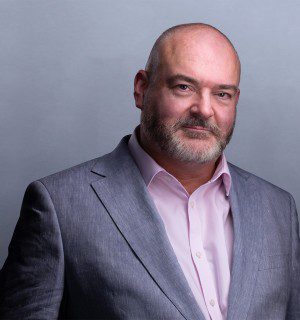News and Insights
COP29 Day Two: Bold Commitments and Stark Realities in Baku
November 12, 2024
Day Two of COP29 in Baku marked a turning point as the event found its stride after a rocky start. While logistical challenges marred the early days, the high-profile World Leaders Climate Action Summit took centre stage, gathering a unique mix of officials and activists who infused the conference with urgency and ambition.
Despite a notable absence of key leaders from major developed countries, figures like Barbados’s Mia Mottley, Turkey’s Recep Tayyip Erdoğan, and UK Prime Minister Keir Starmer brought strong voices to the forum, championing both innovative climate finance solutions and ambitious emission reductions.
A sobering message from UN Secretary-General António Guterres underscored the dire need for swift and resolute climate action, vividly describing a world already in the grip of escalating climate disasters. “Families running for their lives before the next hurricane strikes; workers collapsing in insufferable heat; floods tearing down infrastructure; children going to bed hungry as droughts ravage crops,” he said, emphasising that no corner of the globe is immune to the consequences of climate breakdown. He went on to highlight the interconnectedness of the global economy and climate, warning, “Unless emissions plummet and adaptation soars, every economy will face far greater fury.” Yet, Guterres also conveyed hope, pointing to the commitments made in previous summits and urging leaders to deliver on their pledges, calling for $1 trillion annually in climate finance, mainly to assist developing nations.
The day saw several breakthroughs, notably the announcement of a new carbon market under Article 6 of the Paris Agreement. Azerbaijan’s lead negotiator, Yalchin Rafiyev, hailed this development as a “game-changer,” one that could channel up to $250 billion annually into developing countries to accelerate climate action. This market will allow wealthier nations and corporations to invest in emission-reduction projects in less affluent countries, offsetting their own carbon footprints. However, the initiative faced immediate backlash from NGOs, who criticised the behind-the-scenes approval process as undemocratic, warning that lax standards could lead to double-counting or support for projects that do little to reduce emissions overall.
The day was also marked by significant discussions around the theme of justice, as exemplified by the release of a new report from the UNHCR. This report revealed the compounded struggles of displaced populations in regions severely impacted by climate change, where adaptation funding is often staggeringly low. Filippo Grandi, UN High Commissioner for Refugees, declared, “The climate emergency represents a deep injustice. People forced to flee, and the communities hosting them, are the least responsible for carbon emissions yet are paying the highest price.” This call for justice resonated widely, as leaders and civil society groups echoed demands for developed countries to honour their financial commitments and address the climate crisis’s impacts on vulnerable communities.
UK Prime Minister Keir Starmer added a robust layer to the day’s proceedings, announcing the UK’s ambitious target to reduce emissions by 81% by 2035 compared to 1990 levels. While declining to “tell people how to live their lives” by imposing restrictions, Starmer insisted that a shift to clean energy would lower energy costs and boost energy independence. “I’ll set out our goal later on today, but look, it will be ambitious, and that’s measured not by telling people what to do. It’s measured by making sure that we get to clean power by 2030,” he stated. Starmer also hinted at a billion-pound investment in offshore wind infrastructure, reinforcing the UK’s position as a leader in renewable energy.
Another prominent figure, Simon Stiell, the UN’s top climate official, urged the assembled nations to grasp the economic implications of climate action, framing it as essential not only for environmental but also for economic stability. “The climate crisis is a cost-of-living crisis,” he asserted, “because climate disasters are driving up costs for households and businesses.” Stiell drew parallels with the COVID-19 pandemic, suggesting that bold climate finance commitments could act as “global inflation insurance.”
The speeches were interspersed with poignant reflections from leaders of vulnerable nations. Maldives President Mohamed Muizzu, for instance, conveyed the existential threat facing his island nation, responsible for only a fraction of global emissions yet grappling with a grim forecast of rising seas that could render much of the Maldives uninhabitable by 2050. “For us, the environment and ocean are more than resources; they are our cultural identity,” he affirmed, calling for a financial commitment that reflects the “true scale” of the crisis.
In contrast, Azerbaijan’s President Ilham Aliyev used the spotlight to defend his country’s oil and gas industry as a “gift from God,” a stance that drew criticism from climate activists. Aliyev’s address touched on the paradox faced by many oil-rich nations, navigating between green transition advocacy and reliance on fossil fuels. Rev Fletcher Harper of GreenFaith countered Aliyev’s perspective sharply, calling fossil fuels “the highway to hell for billions of people and the planet.”
With COP29 now firmly underway, the urgency voiced by leaders and the UN resonated deeply with those present. The summit continued to unfold as a stage for high-level negotiations and a gathering of voices demanding change, equity, and accountability. From ambitious financial pledges to the profound human stories shared, Day Two underscored that while COP29 has its political and logistical challenges, it is ultimately driven by a collective resolve to confront the climate crisis head-on.
